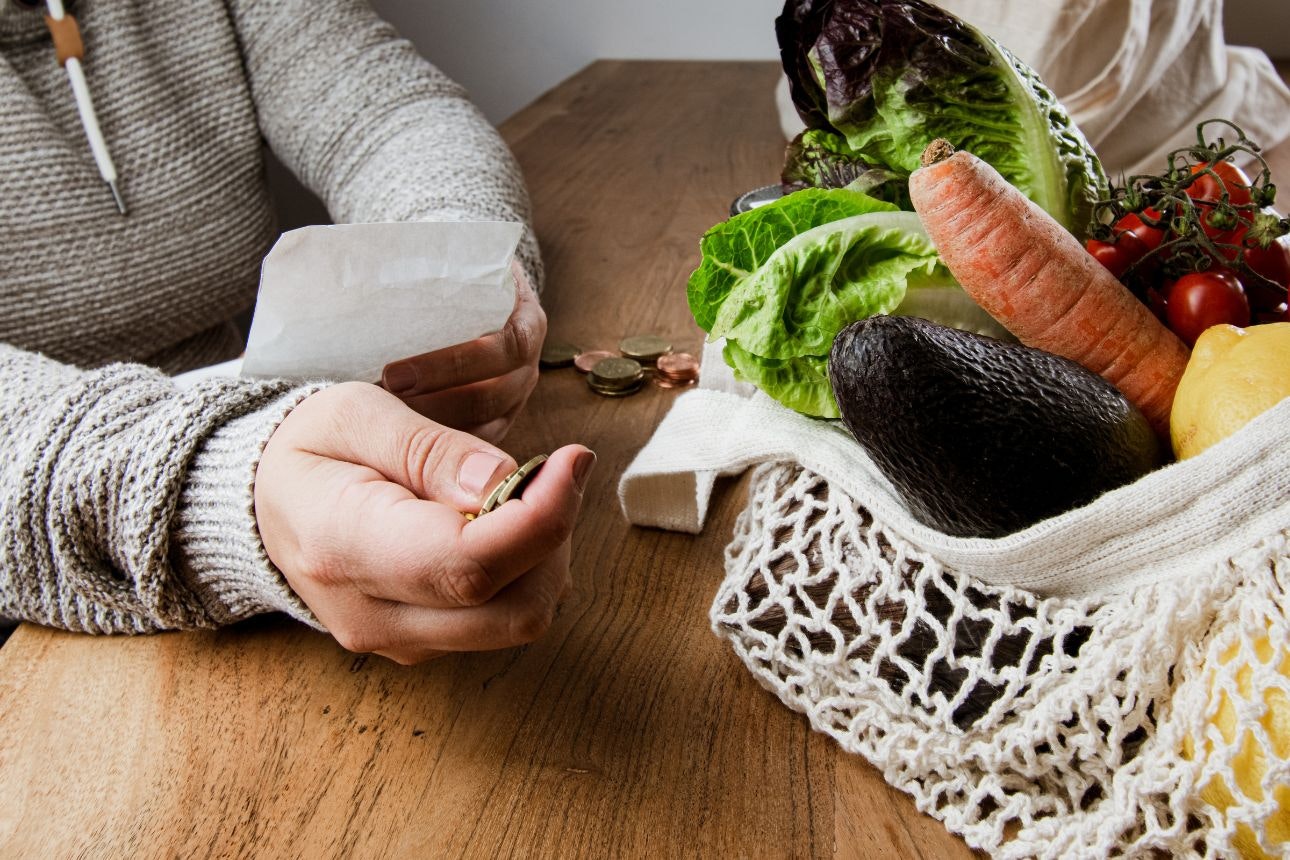
By Belinda Castles
Researcher | Kairangahau
In our latest supermarket experience survey, 37% of respondents told us they regularly have to stretch their food budget, with many cutting back on healthy options like fruit and vegetables. We weren’t surprised. When we tracked prices for an online basket of 20 grocery items for 6 weeks in the regions, we found fresh produce was on special less regularly than packaged products.
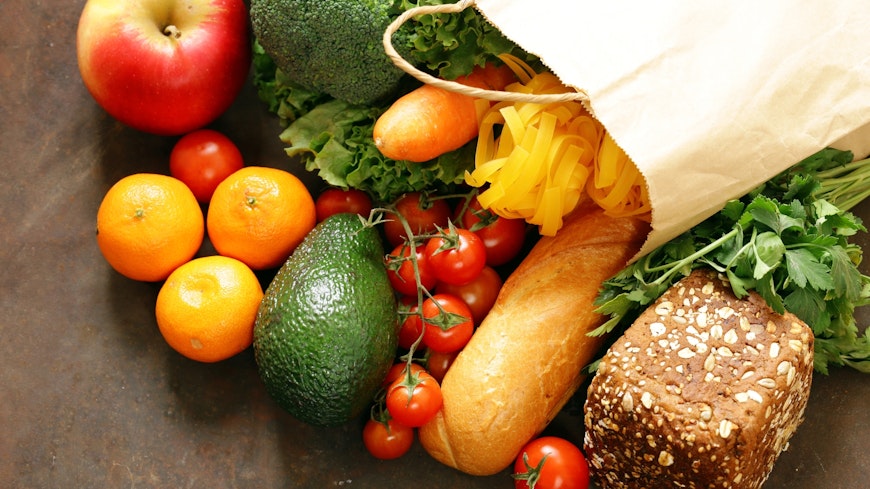
When shopping at my local supermarket, I often chat with others in the check-out queue about how expensive it is to fill the trolley.
Unfortunately, high supermarket prices are taking their toll. Our latest consumer research paints a worrying picture.
We found a significant number of households are struggling to afford enough food or the types of food they prefer.
37% of respondents reported regularly or very often stretching their food budget.
20% sometimes or often don’t have enough food.
43% said they “have enough food, but not always the kinds we want to eat”.
29% of respondents who told us they have changed the way they shop in the past 12 months are buying less fresh and whole foods (including fruit, vegetables and meat).
30% told us they have needed assistance from food banks, family or friends to get food – with 10% indicating they often needed this help.
I asked Health Coalition Aotearoa food policy expert panel member and associate professor of health equity and innovation at the University of Waikato Dr Victoria Egli whether it’s a concern that people are compromising nutrition for price when buying food.
“It’s deeply concerning so many New Zealanders are having to cut back on healthy foods to get by. When people are priced out of healthy food, we see a rise in preventable health issues like type-2 diabetes, heart disease and worsening mental health problems.”
Egli said these impacts fall hardest on our most vulnerable communities and exacerbate existing health and social inequities.
Lack of specials on fresh produce
According to the respondents in our survey, price or value for money is the main reason for choosing a particular supermarket. And people are increasingly adopting cost-saving strategies to save money at the check-out.
Of the people who said they’ve changed the way they shop for groceries in the past 12 months, more than half always or often compared prices (54%), and a similar number (51%) were buying in bulk or stocking up on specials more.
Hunting out specials is hardwired into the way we shop for groceries.
In our investigation into supermarket specials last year, the marketing academic we spoke to told us consumers are easily manipulated in a retail environment like a supermarket. That’s because there are tens of thousands of items vying for their attention. The research has shown that consumers respond very strongly to any indication of a special price.
More recently, we tracked a basket of 20 supermarket products for 6 weeks in regional towns. Our basket had packaged products, as well as fresh produce items, including bananas, carrots, potatoes and chicken drumsticks.
We found several of the packaged products in our basket were regularly on special, but specials were lacking for the fresh produce.
For example, at New World Hastings, bananas, carrots and potatoes weren’t on special any of the 6 weeks we tracked prices. But Chelsea white sugar, Bell tea bags and Fresh’n Fruity yoghurt had special prices 3 of the 6 weeks.
At Woolworths Napier, the same sugar and yoghurt products were also on special for 3 weeks, with carrots on special for just 1 week. Pak’nSave Napier painted a similar picture – no specials on bananas, carrots or potatoes. But Wattie’s canned tomatoes carried an extra-low price for 5 weeks.
The chicken drumsticks we tracked weren’t often on special either. Chicken drumsticks were on special 2 weeks at New World Hastings, 1 week at Pak’nSave Napier and not at all at Woolworths Napier.
It was a similar story in the South Island regions we looked at.
Woolworths Timaru had no specials over the 6 weeks on bananas, loose carrots, loose white washed potatoes or chicken drumsticks. For the same products, New World Timaru only had potatoes and chicken drumsticks on special for 1 week.
At Pak’nSave Timaru carrots and potatoes were both on special for 2 weeks and chicken drumsticks one week. However, that’s less than the 4 weeks Bell tea bags and 5 weeks Wattie’s canned tomatoes were on an extra-low special price.
Egli said healthy food should be available for everyone regardless of their budget.
“We’re making it harder for people to eat healthily while prioritising the profits of food companies. There are ways to stretch a food budget, such as using canned and frozen vegetables and dried beans and legumes. But these are short-term strategies, not long-term solutions.”
To improve diets and public health, Egli said we need pricing and promotion strategies that put people’s health ahead of corporate gain.
Foodstuffs said: Specials are run across a wide range of fresh foods. Because fresh food depends on the season and supply, promotions change from week to week. When supply is good, we work with growers and suppliers to offer weekly deals. Some items, like bananas, aren’t usually on special because they’re an everyday staple for many Kiwis.
Lack of satisfaction with supermarket specials
Despite consumers telling us they’re stocking up more on specials, there’s dissatisfaction with promotions and specials.
Many people in our supermarket experience survey told us they’re satisfied overall with their main supermarket’s promotions and specials. However, 29% of respondents said they have little or no trust that their main supermarket prices products and promotions fairly. And about one-quarter (26%) of respondents disagreed with the statement “I feel confident that supermarket discounts represent real savings”.
When we looked at supermarket specials last year, we discovered there was nothing special about specials.
Many of the items we tracked were routinely on special during the 8 weeks we tracked prices.
Some specials weren’t delivering the savings the supermarkets were trying to convince us about.
One supermarket’s special could be another store’s regular price.
Consumer NZ has been concerned for many years about the supermarket landscape in Aotearoa, including misleading supermarket pricing and promotions. In 2023, we lodged a complaint with the Commerce Commission. Our complaint included over 600 alleged examples that were brought to our attention through our campaign to end dodgy specials at the supermarket.
This resulted in the Commerce Commission announcing it would be filing criminal charges against Woolworths NZ and two Pak’nSave supermarkets.
We’ll continue to push for measures that ensure fairer pricing, improved transparency and increased competition in the supermarket industry.
If you find any misleading or confusing specials at your local supermarket, email us the details at [email protected]
About our surveys
Price tracking survey
We tracked the online price of 20 products for 6 weeks, every Wednesday from 26 February to 2 April 2025.
As well as food and drink, cleaning products were on our shopping list.
We also included some fresh produce, such as bananas, carrots, chicken drumsticks and eggs.
We specifically tracked whitewashed potatoes and carrots per kilo for consistency and price comparison purposes. Some supermarkets had specials running on other volumes, e.g. a 4kg bag of potatoes.
We excluded wine and beer.
In most cases, all items were the same brand and size in each supermarket.
For milk, butter and eggs, we selected the cheapest brand available each week.
For frozen peas and pasta, we included the cheapest available of two brands (we didn’t track supermarket home brands).
Grocery survey
Our data are from a nationally representative survey of 1,005 New Zealanders, aged 18 years and older. The survey was carried out online in April 2025.
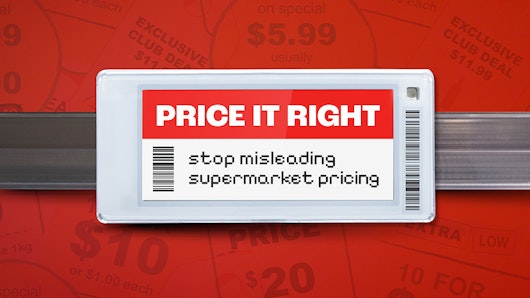
Make supermarkets price it right
Find out about our campaign to tell the government we need clear rules, stronger penalties and automatic compensation for shoppers.
Comments
Was this page helpful?
Related articles
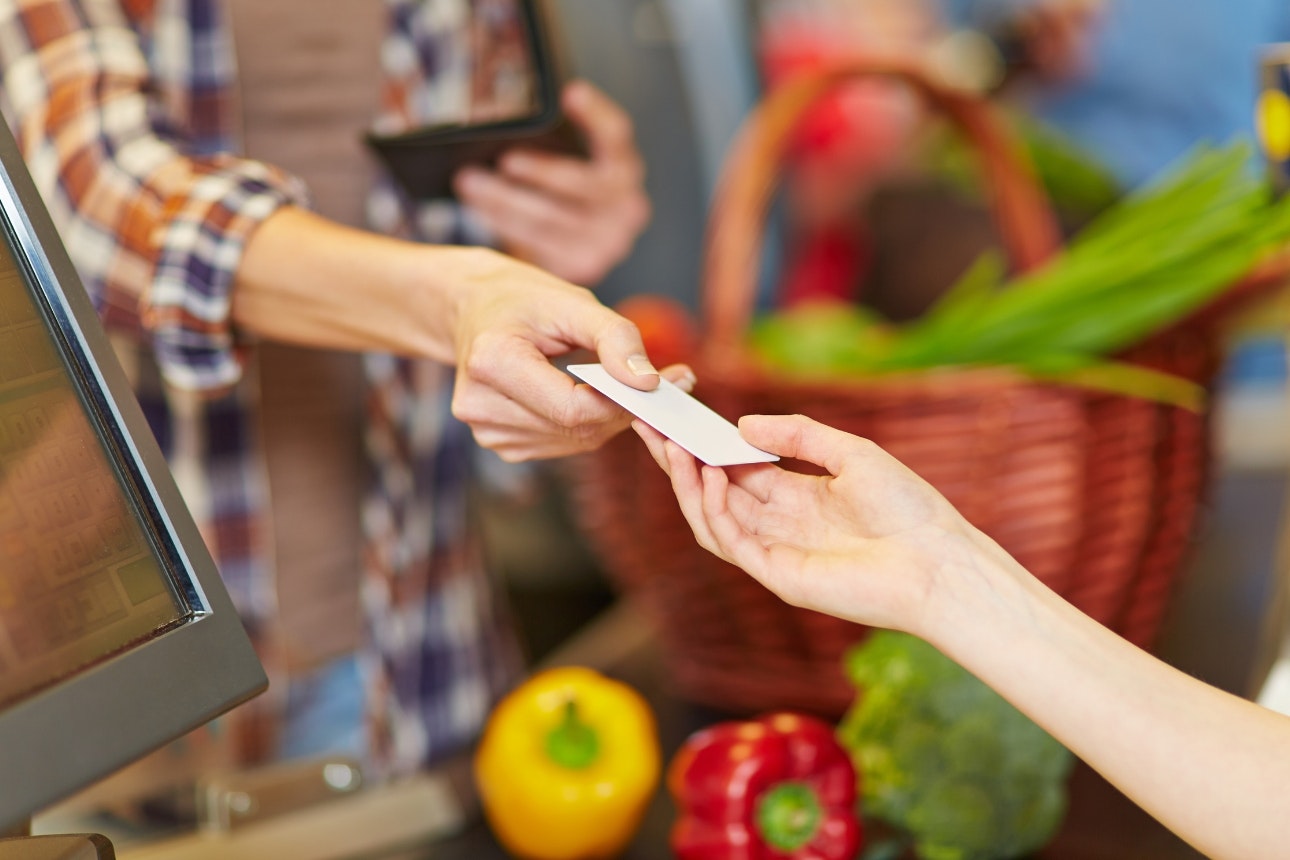
Survey shows shoppers sceptical about supermarket specials
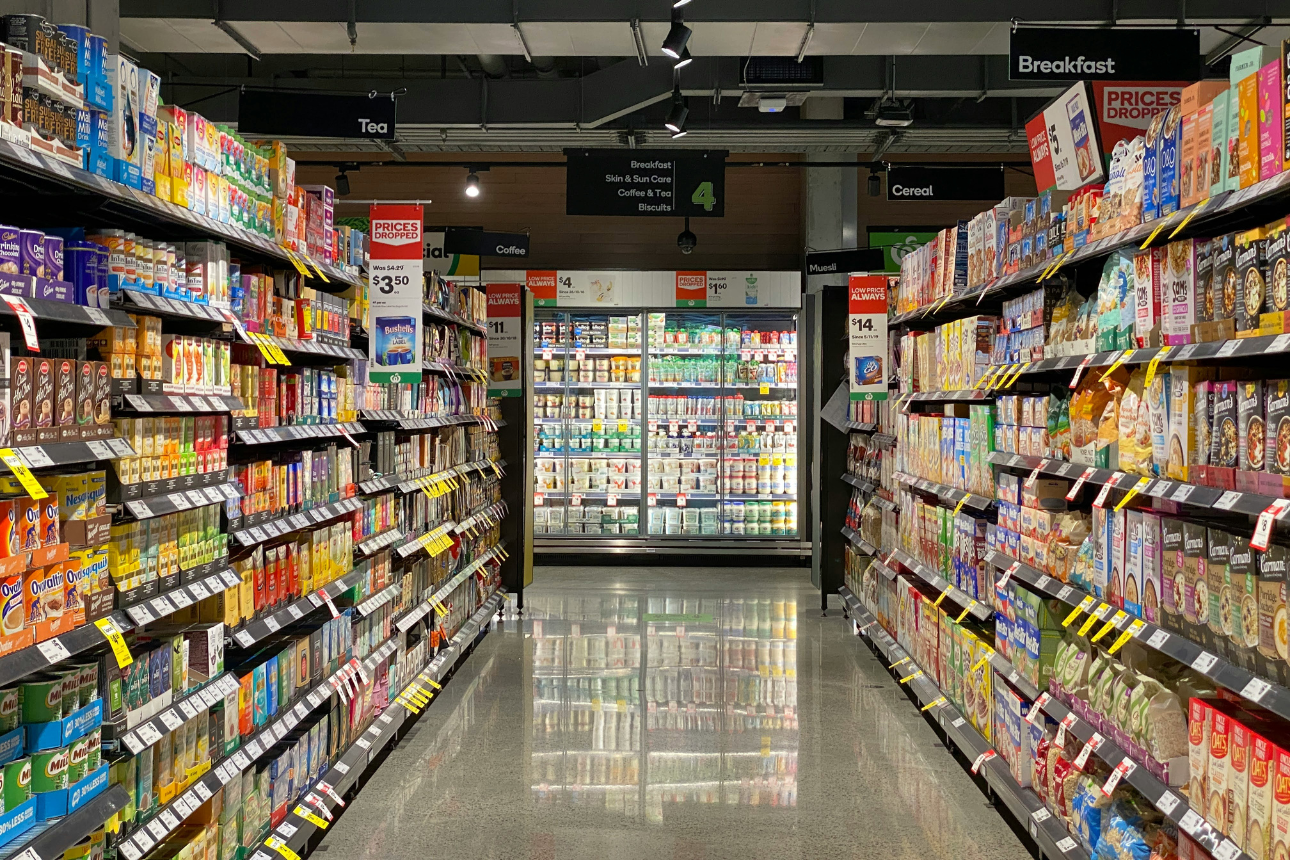
Despite low confidence in government efforts, people want urgent action to lower grocery bills
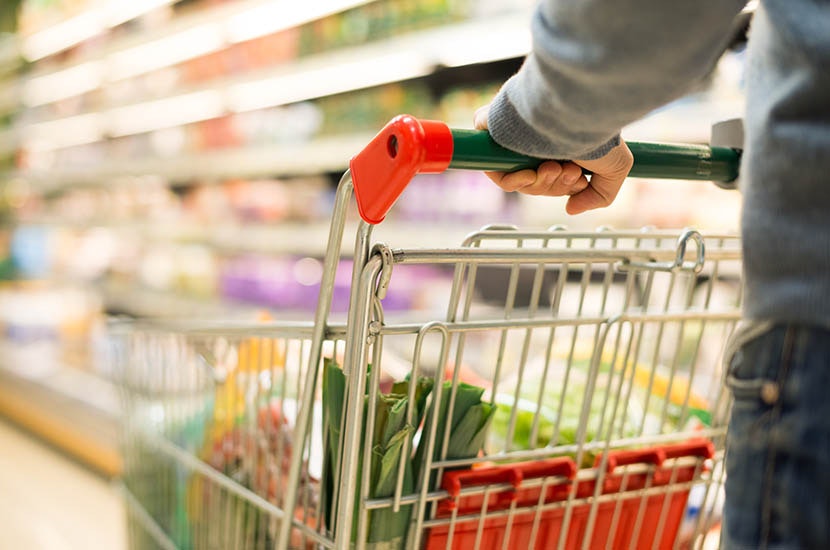
Consumer NZ urges New Zealand to learn from Australia’s supermarket inquiry
